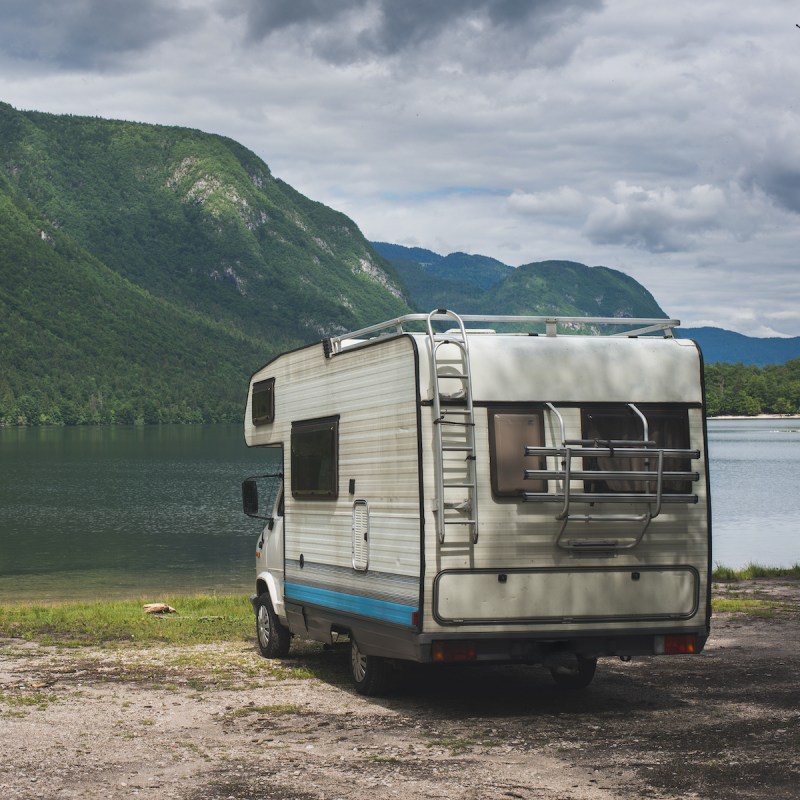
Ageism is never appropriate — even for RVs! Did you know that some commercial parks are now enforcing a 10 years old rule? If your RV is more than 10 years old, you may be denied a spot in some RV parks. I’ve never heard of this in any government parks (local, state, national, Corps of Engineers, Forest Service), so those campgrounds are always an option for older RVs. But some “resort” parks, and even moderately priced parks, are getting pretty picky about who they let in. Let’s explore this topic so you are prepared.
Videos by TravelAwaits

Why Do Parks Discriminate By RV Age?
This is a tale of two situations. Some upscale parks want to ensure their guests with expensive rigs have a great experience. Staring out at an older RV does not fit that aesthetic for some people. Many RVers on blogs, chats, and forums are bristling at the idea that their rig is not “good enough” because of age. Instead, they see this as a proxy restriction because someone thinks their rig is not expensive enough to pass muster.
The other position of RV parks is that they need to protect themselves from “drop-offs” of aged-out campers. We’ve all seen them — the campers that look like they are on their last legs. People abandon them in RV parks and the owner is left with the bill. Or, people become squatters and eviction can be a lengthy and costly process for the park owners who don’t want that headache.

Enforcing An Age Limit Is Tricky
I own an Airstream and can easily fudge its age. People find this the easiest solution providing your rig is not outwardly dated with peeling stickers, well-worn exterior, or other decorative or siding materials that give away its age. Some parks will ask for a picture before allowing a reservation or enforcing the age rule. If you look good, the park will likely grant an exception.
Vintage campers like the famous “canned hams” fall into this “looking good” category as do other well-restored rigs. The group, Sisters on the Fly, regularly schedule group campouts around the country and have a tour day during their stay. People come from towns around the campground to see these amazing and colorful restored campers. There’s value in older units.
Campgrounds may require a Recreational Vehicle Industry Association (RVIA) sticker on the RV to ensure that your camper is manufactured by a recognizable source. Of course, the RVIA sticker does not guarantee the current quality of an older RV, but it is a starting point to eliminate homemade campers, retrofit or converted storage trailers, and converted horse trailers.

Should RV Age Be Restricted Or Not?
The answer to the question is that it’s all in the eye of the beholder. Fancy, expensive rig owners may say yes, and owners of older campers may say no. Park owners want to simplify their life by avoiding complaints and avoiding legal entanglements. I suspect, however, that anyone who is looking to dump an old rig or be a squatter is not going to attempt to get into a high-priced RV resort park. And people who want to avoid dumpy RVs will not be parking at super budget-friendly parks. It is the vast middle that seems to be in the push and pull of rules and enforcement. RV parks also don’t want to deal with breakdowns — RVs that leak oil or other fluids, broken windows, or duct-taped sides that may break. I’ve experienced being near an old RV that had a black tank issue inside and then outside their rig. It did not give me a pleasant experience.
Drivin’ & Vibin’ did a check-in with RV parks and its readers and found that most parks will grant exceptions, especially with pictures that are honest. Most readers don’t like the 10-year rule for obvious reasons — no one wants restrictions that exclude them and most people think their camper is just fine, if not fabulous.

Is There A Workaround For The Age Rule?
The consensus from the RV world is that workarounds seem to actually work for both sides of the debate. People fudge the age of their rig to make things simple or RVs can be given a shiny appearance with some extra maintenance. Granting an exception to the rule by providing a picture seems to be the simplest protection for both the campground and the RV owner. Park owners don’t want to be legally committed without seeing the camper first and no one wants a fight at the office when RV owners are blindsided with a rule that excludes them.
Personally, my workaround is to not stay in parks that restrict due to age. I prefer government campgrounds anyway. I enjoy staying at more upscale places with full hookups and amenities for a night or two in between long stretches of more outdoorsy camping, and I am prepared for the age rule because my RV is over 10.
It’s unlikely that you will encounter a surprise situation if you read the campground or RV park website and are challenged to send a photo. In this time of crowded campgrounds, it may get harder to work around the age rule. Be aware and be prepared with a picture, a story about your RV’s age, or a campground plan B.
